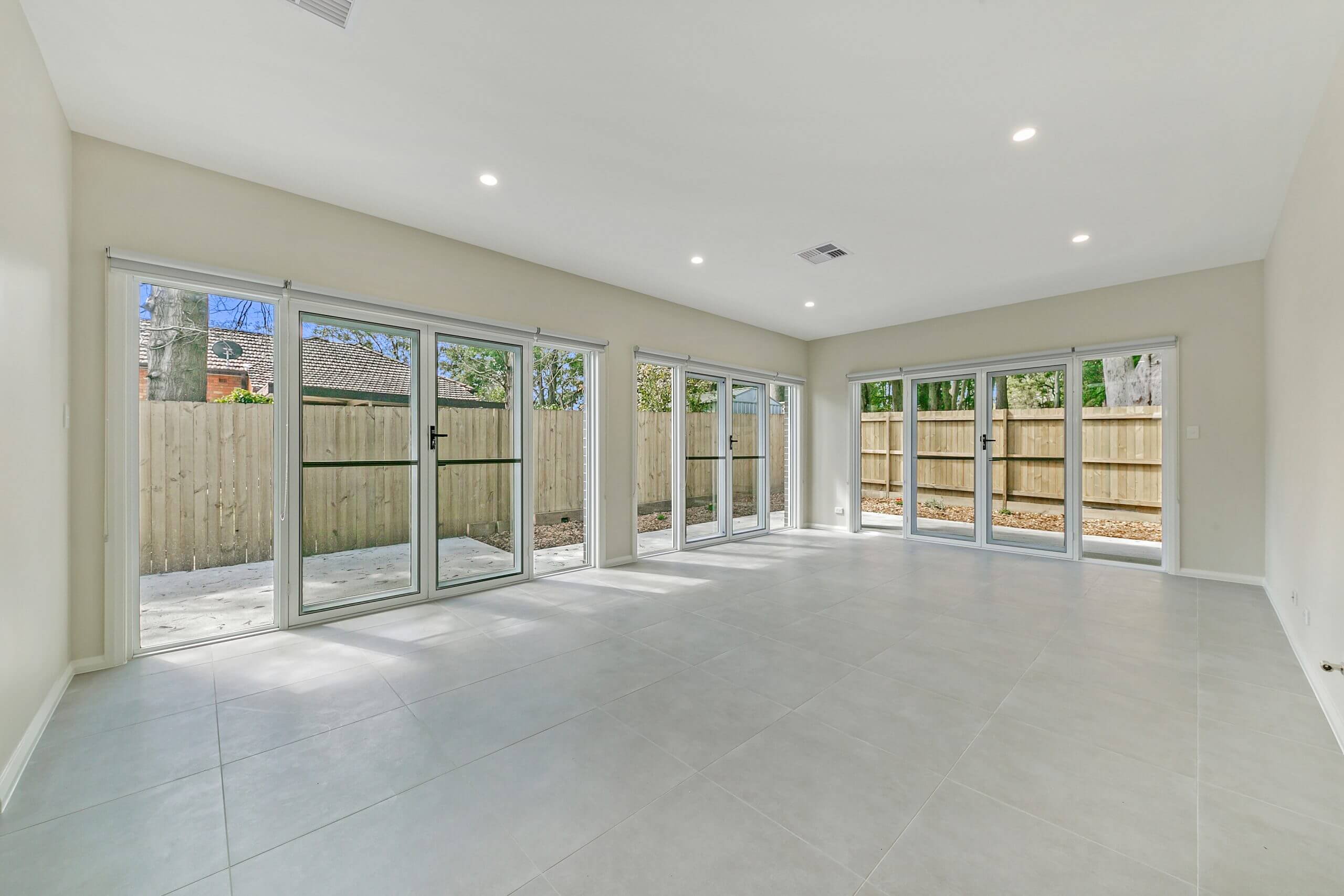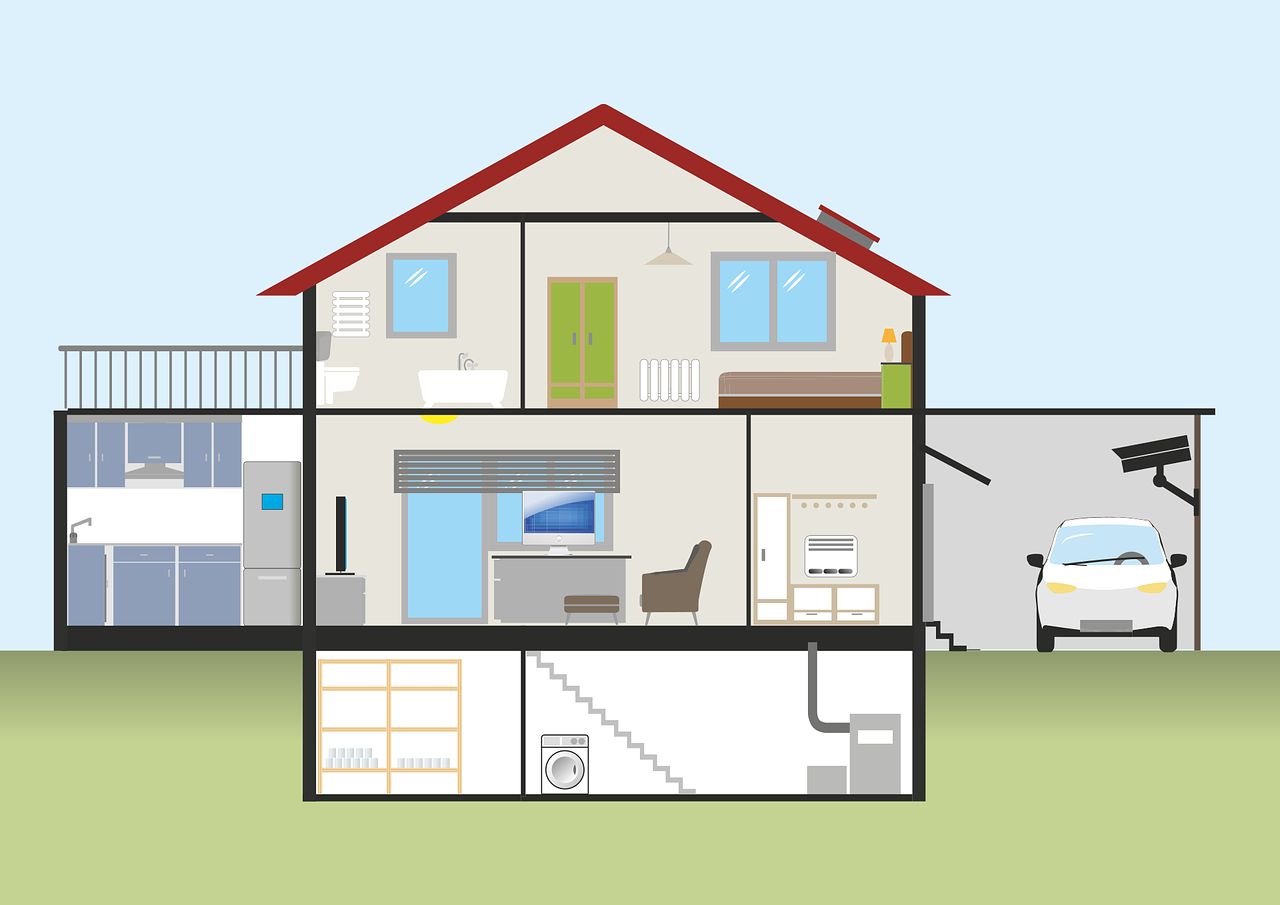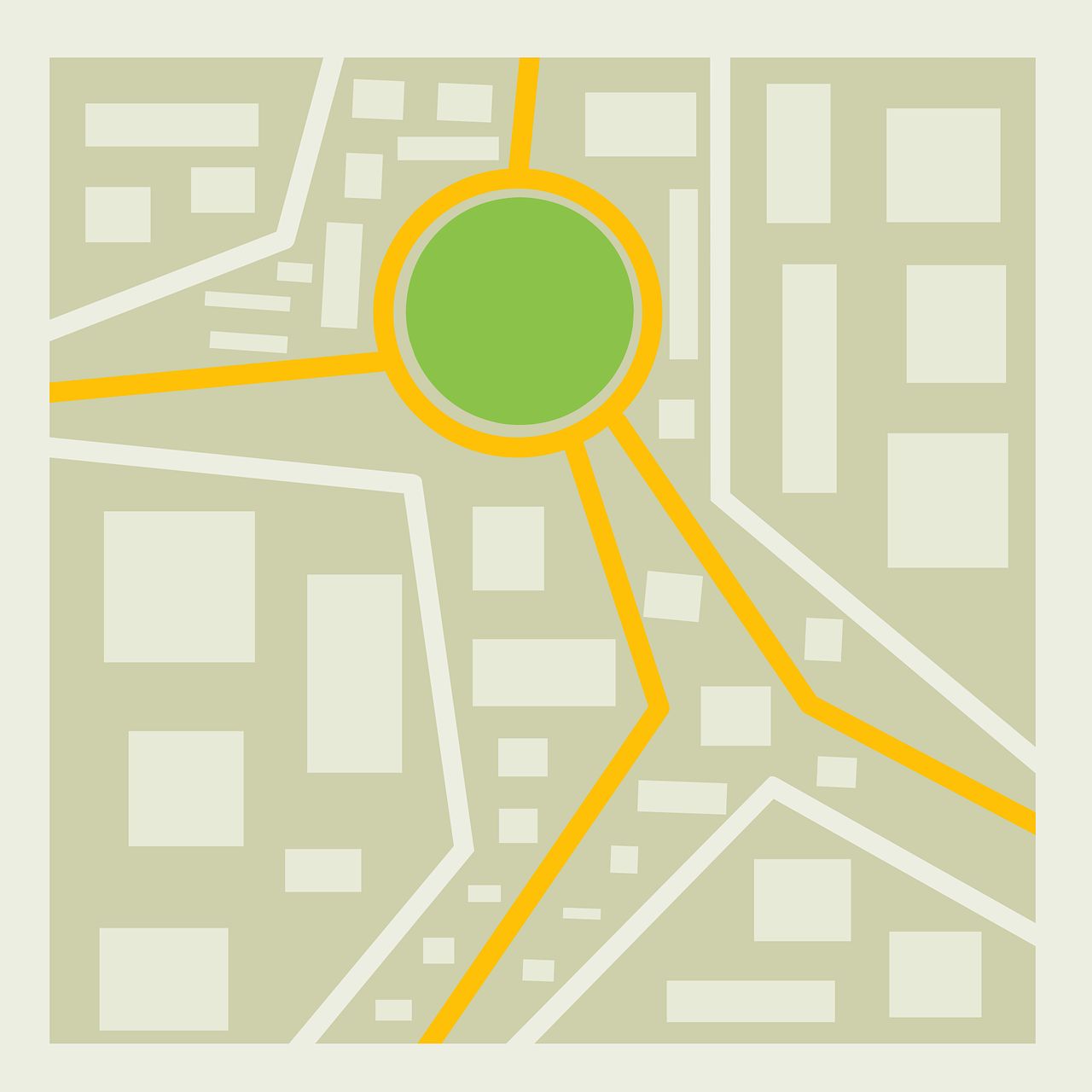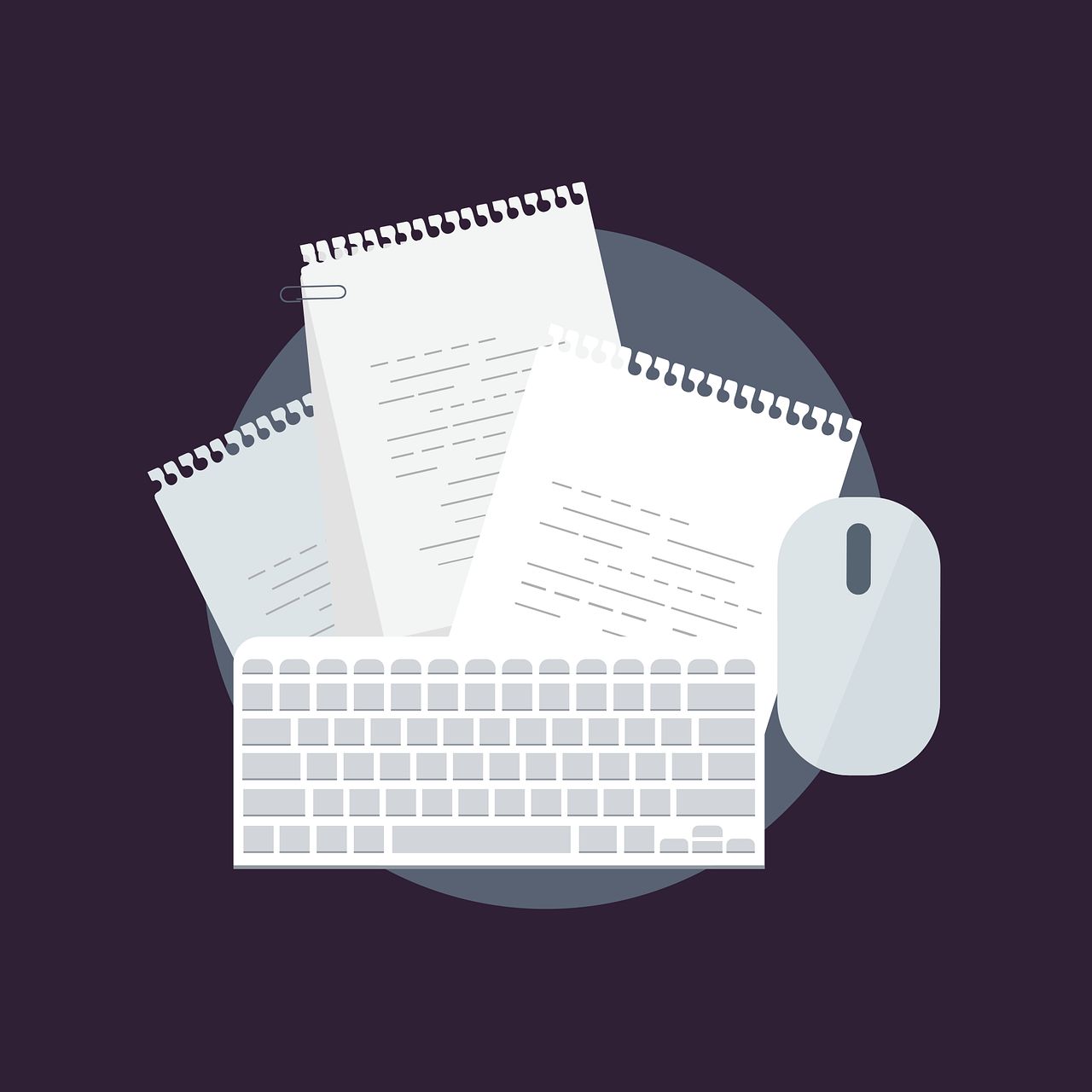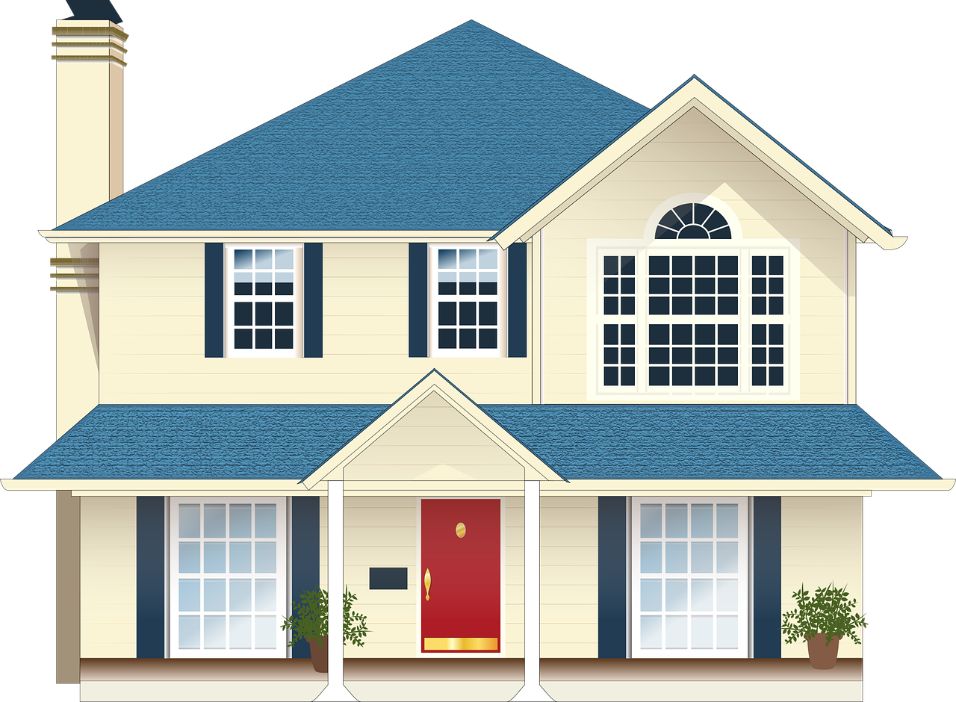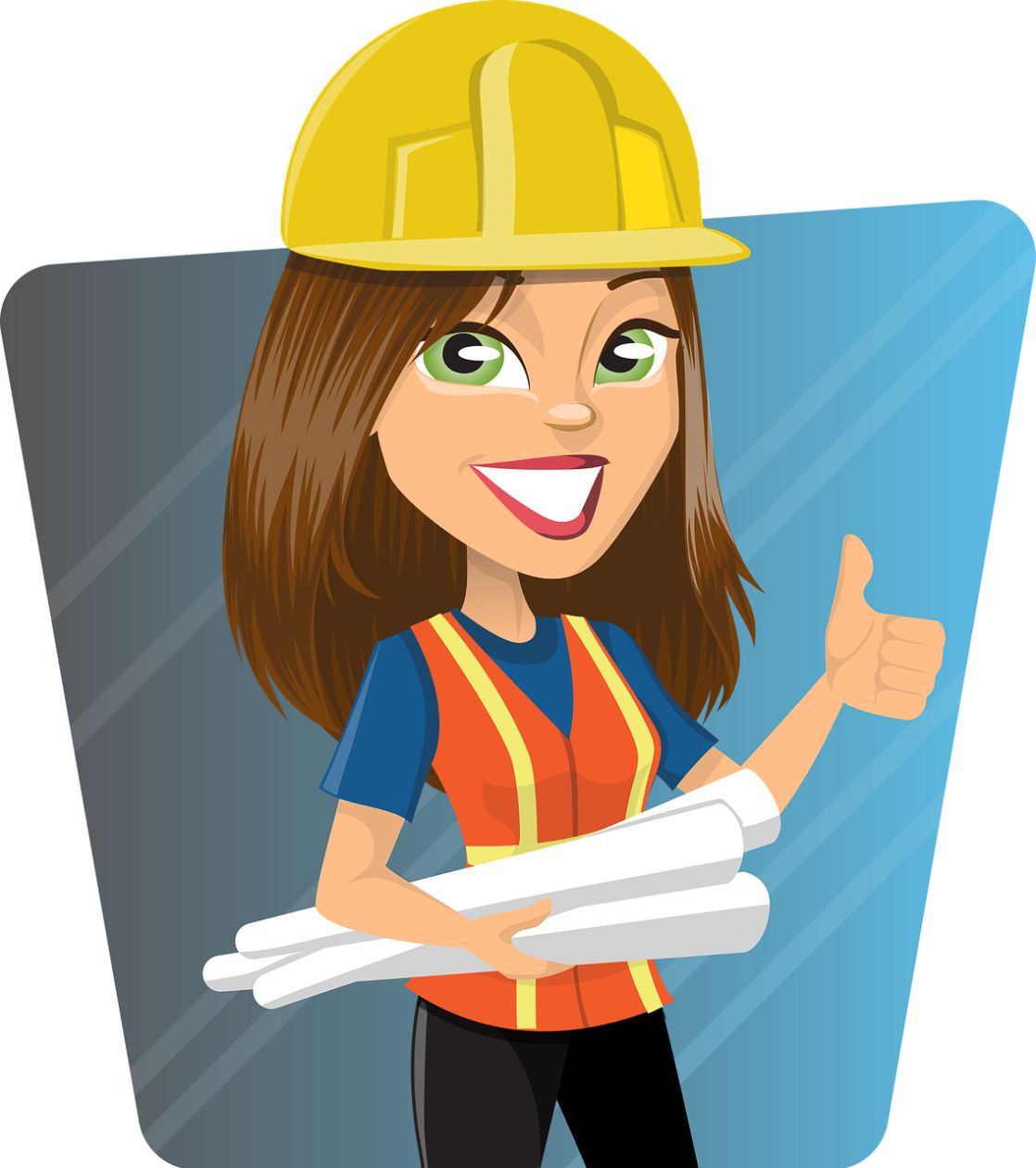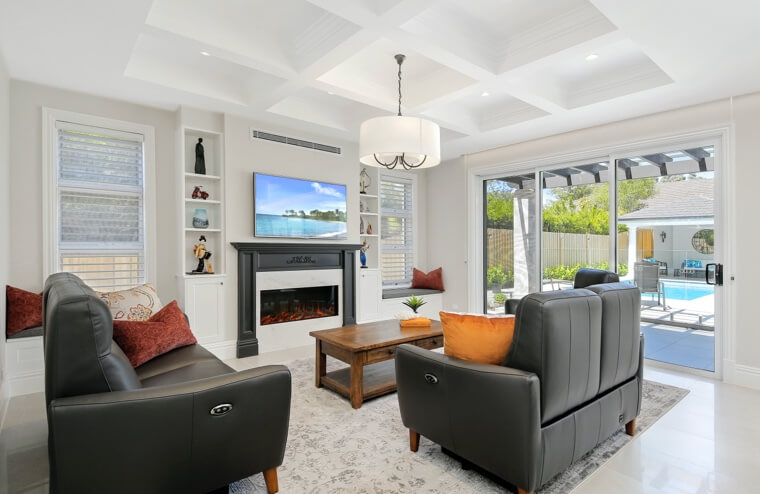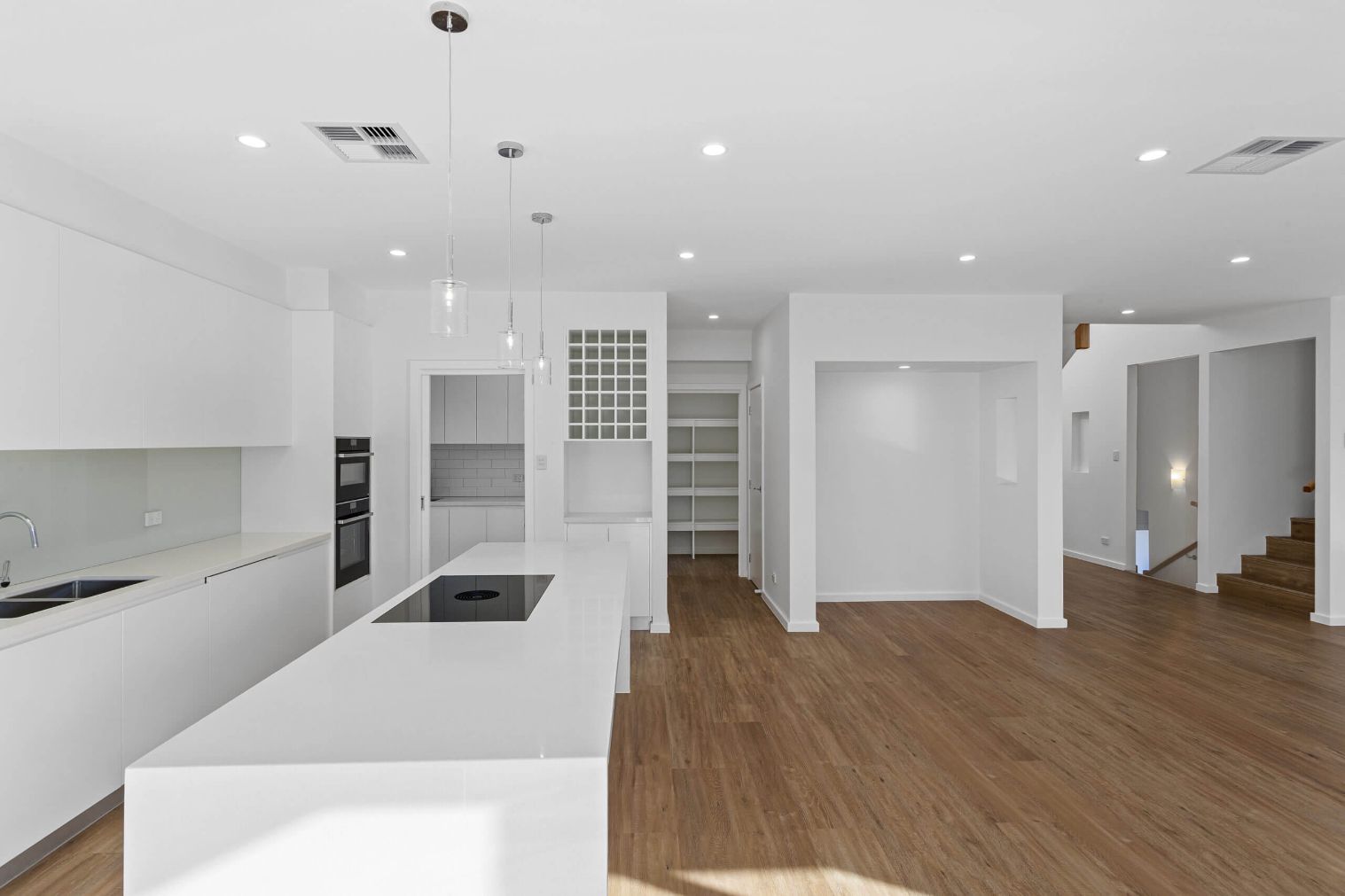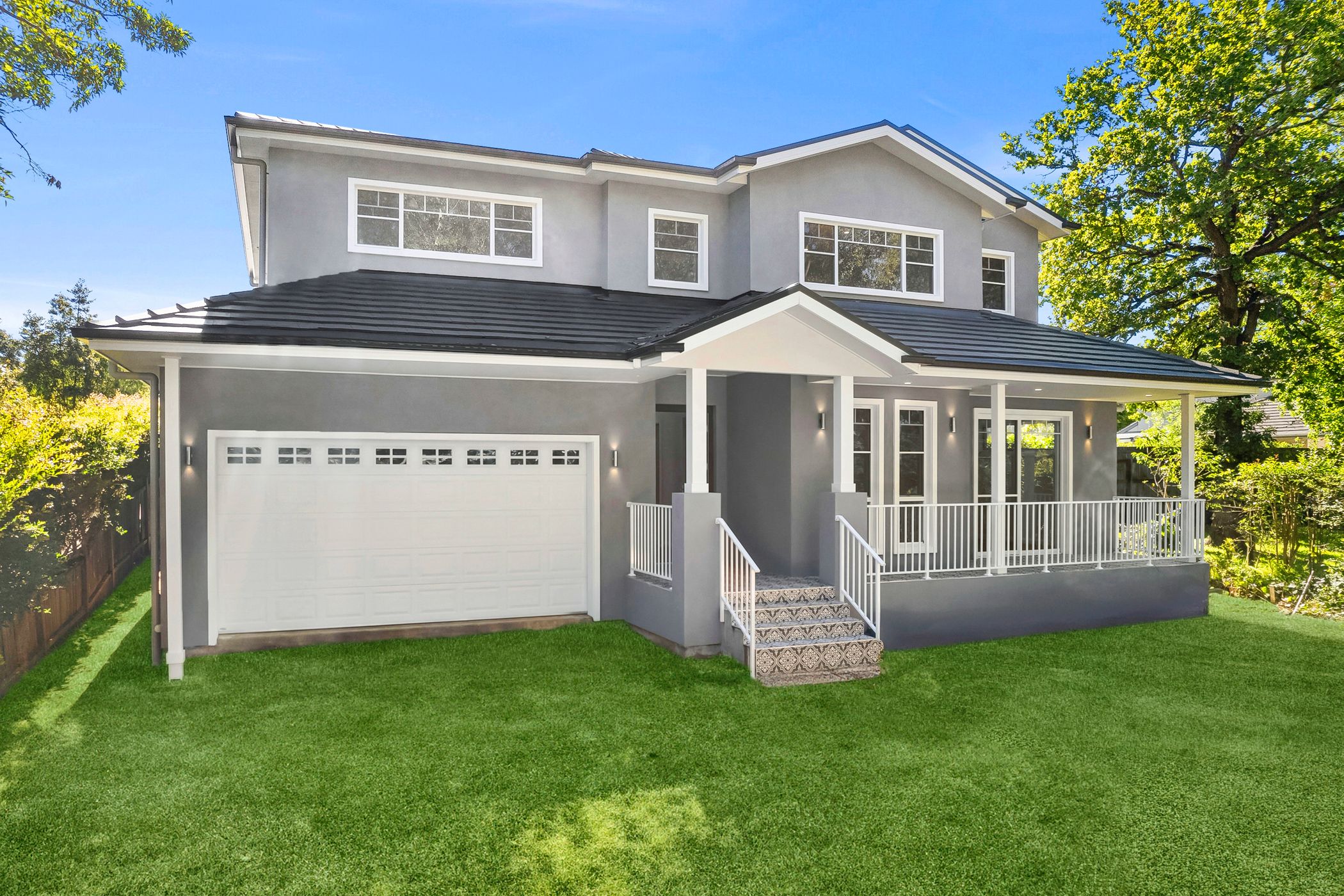
The Guide to Budgeting for Your New Home Build
Budget – the most important consideration, which often has the final say over every consequential decision, is often one of the hardest things to wrap your head around.
Money sets a construction project in motion, whether it’s a minor renovation or a home built from scratch. Therefore, the best home build budget should be realistic and achievable.
Creating a realistic home builder budget is the most important task to complete before building a custom home design. With a concise budget, you can properly forecast costs and manage your expectations.
In this guide, we’ll provide an overview of how to budget for a new home build, what costs to plan for in your budget, and tips to create a realistic budget. Read on for an overview of how to budget for a new home build.
A quick overview of how to budget for a new home build
A construction budget is the total sum of money required from the beginning of the project until tools are down, including all associated costs along the home building journey.
Here’s a brief overview of planning a new home budget:
- Work out the main goals of your budget
- Decide on your non-negotiables
- Get clear on what your budget needs to include
- Secure pre-approval if using a loan to finance your build
- Understand what inclusions and exclusions apply
- Discuss your home budget with your builder
- Keep an open mind
What exactly goes into a home building budget?
One general rule applies to every homeowner, whether they’ve built, bought, renovated, or demolished – don’t purchase more house than you can afford. A good way to guarantee this is to understand what goes into the cost of your new home.
While many new home builders and construction companies have their own cost indicators, the ‘real world’ cost will vary based on several factors. This begins with the size and cost of the land and whittles down to the intricacies of your property design.
Most new home builders will charge per square metre, including materials and labour, and the price will vary based on whether you choose a project home, an architect-designed home, luxury home build, or a house and land package.
Aside from the cost of the land and the price your builder charges for the home design you choose, some potential extra costs include:
Site costs
Site costs comprise of all that is needed to prepare the land to host the home. This can include if you’re planning a knockdown rebuild, if the site needs clearance, soil testing, service connections, fences, retaining walls, plus the site survey.
If you plan to knock down and rebuild your home, here are 4 tips for financing a home knockdown rebuild.
Pre-start meeting costs
The pre-start meeting is when your plans are finalised and approved, and you’re ready to begin choosing your paint colours and fittings. This will allow you to change the design to include more individualised choices and upgrade to higher quality inclusions. Some of the elements you may wish to change in your pre-start meeting include electrical improvements, roof materials, tiling, kitchen cabinetry and fittings such as taps and shower-heads. Allowing some wriggle room in your budget house build for the pre-start decisions can result in creating a home perfectly suited to you.
BASIX
Never heard of it? If you’re building a home in NSW, you’ll become very familiar with this acronym – standing for the building sustainability index. BASIX is the NSW’s Governments initiative to make homes more sustainable by reducing the impact of your electricity and water usage. The cost of your compliance will vary based on your land and build, but you will be required to meet minimum sustainability targets. Your builder will work with you to achieve this, and many have BASIX inclusions as part of their home build pricing.
Variation costs
Sometimes, people change their minds at the last minute, resulting in the need to make variations after the contracts are signed. These changes can be as significant as adding a deck or as minor as changing the tile style in your bathrooms. However, you should be prepared to fork out some cash to cover the variation fee and a mark-up on the variation’s cost. While variations are best avoided, if you choose to make them, having the money set aside will make things go smoother for both you and your builder.
The cost of finishing your home
Yep, unless you’ve chosen a turnkey package with the home ready to kick back and relax in, there may be extra costs involved with getting your home finished. This can include essential items such as carpeting, air conditioning, landscaping and paintwork, and practical things such as a clothesline, wheelie bins, a letterbox, a driveway, and fencing.
Here are 7 tips on how to budget for a home-build that’s both realistic and exciting.
1. Choose the right floor plan
Your house floor plan will significantly impact your budget, both during and after the building process.
From the first design consultation, your architect, builder, and design team need to know your budget. There is no point in becoming emotionally invested in a home that’s too large and then trying to cut costs to make it happen, only to end up with the wrong house for your budget.
When building your home, you should know that you’ve got the right floor plan before any work is done. Last-minute changes to move walls or add rooms can be costly and blow your budget.
After you’ve built your new home, if you haven’t planned your floor plan properly, you will continue paying for it in other ways.
For example, you may face the cost of under-utilised rooms, impractical workflows, additional energy for lighting, heating, and cooling areas that don’t have natural light or a lack of privacy from ill-planned windows.
2. Understand your builder’s quote
Hidden costs are every home builder’s fear. Unforeseen costs are extremely common and an unfortunate way to end up with a house that’s wrong for your budget.
Make sure you understand what is (and isn’t) included in your quote to ensure you have the budget for any fixtures, finishings, and landscaping to finish your project.
Also, keep in mind the extra costs of your new house, such as furniture, utilities and moving costs that you’ll need to cover.
3. Don’t start before you’re ready
First home buyers can be itching to get into their new house, and investors are likewise often eager to see their investment turn a profit. But if you rush into the process, mistakes happen. Jumping in and starting the build process before you’re ready is an easy way to end up with the wrong house for your budget – only to realise when it’s too late.
By all means – Organise and go forward with your plan. Give yourself time to research, talk to the right professionals, and make good, well-thought-out plans.
If you feel overwhelmed, don’t ever feel pressured to start building before you are ready. Always ask questions when you have them, and don’t hesitate to shop around if your builders aren’t filling you with confidence and being transparent about their building process.
4. Find the right location
Where you build your house can have a significant impact on the building cost. Two houses that look the same can cost different amounts based on their positioning on the land and access to the block.
Your dream house may initially fit within your budget, but the location can cause unexpected expenses. If you are picking a house design for a specific block of land, ensure the builder or designer has surveyed the land before settling on a price for your budget.
5. Have a buffer in your budget
If every cent of your budget is planned and allocated before the build begins, you could be in for a difficult journey. Even the best-laid plans often have unexpected costs, no matter how thorough and detailed your builder is.
We recommend you to plan for a 10-20% budget buffer when building a house on a budget. This ensures you’re covered if you need more financing. Best case scenario – there’s extra money in your wallet for new home decor when you move in.
6. Be realistic
Some of the most common mistakes for building a home within your budget come down to miscalculating costs and not being realistic. It’s easy to become emotionally attached to an idea, especially when building your dream home, but if your budget doesn’t stretch that far, it’s important to re-evaluate. It can be tempting to try and cut corners and use up the buffer space to make your dream happen, but that will rarely produce a positive result.
Being realistic is important beyond just dollars and cents. It’s important to be realistic with timelines too. Many people’s schedules need to work together to build a house, which often doesn’t consider the weather, which is entirely out of anyone’s control. Set yourself up for success by being realistic when budgeting both your time and your money.
7. Choose the right builder
Choosing the wrong builder can quickly make your building dreams a nightmare. Working with a builder who doesn’t understand your budget, doesn’t care about your experience, or doesn’t come with sufficient experience are all ways to end up with a house that costs more than you ever planned.
Research your builders and compare builders’ quotes, home inclusions and your experience communicating with them. Read reviews, check references, look at previous work, and ensure you feel 100% confident in your choice before signing paperwork.
Most of the mistakes to avoid when building a new home can be thwarted by using quality home builders. The builder you choose will dictate the quality of your home and your experience throughout the process.
Make room for surprise costs in your home budget
Rarely are two house builds the same. Your home building costs will be different than what your friend paid to move into Sydney’s hottest suburbs or even what your next-door neighbour paid for their build.
Yet, it is impossible to anticipate every single thing that you will need to swipe the credit card for along the way. Therefore, some wiggle room is essential. Still, a comprehensive plan ensures things don’t get too out of hand. This will leave you with extra money for the things that really matter.
Surprise issues that can impact the cost of building your home
- The size of the project
- The simplicity or complexity of your design
- Market forces such as availability of materials and contractors
- If you have a sloping site
- If the site has poor access
- Poor foundations or difficult ground
- Rock excavation
- Whether you need to perform demolition or clear the site
- Service installation. (i.e. water, sewer lines, electricity etc.)
- Government requirements such as onsite rainwater storage
- Your location, i.e., the affluence of your suburb or your regionality
Communicate during every step of the budgeting process
When a budget is unrealistic, nobody wins. You experience disappointment and the builder wishes they could make materials and labour grow on trees. This continues to be a common building issue within the construction industry throughout 2022.
In every design brief, there are factors you can change and others that are non-negotiable, and if you have budget concerns, the more flexibility you can have with your design, the better. Remember that a wide range of factors influence a final building budget.
Understanding these factors will go a long way in preventing disappointment, garnering a good relationship with your builder, and ensuring you’re in the ‘extra money’ camp and not the ‘raiding the piggy bank’ camp.
To help nail down your budget even further, check out our blog with tips on building on a budget.
Even with all the information in front of you, it is ultimately impossible to plan the cost of building your home down to the dollar. Only your builder will understand what is impacting the industry and the cost of what needs to go into your build.
If you’re looking for experienced new home builders that you can trust to create your custom home from scratch, New South Homes brings together everyone from designers to builders to create high-quality homes under one vision.
Click here to read about our process, inclusions, resources, offers and more. Ready to start your next home build, call us on 02 9481 7441 today!
Experience
the
Difference
Ready to start your building journey? Chat to our team of experts today and get a FREE personalised quote
Find Out More
Related Posts

